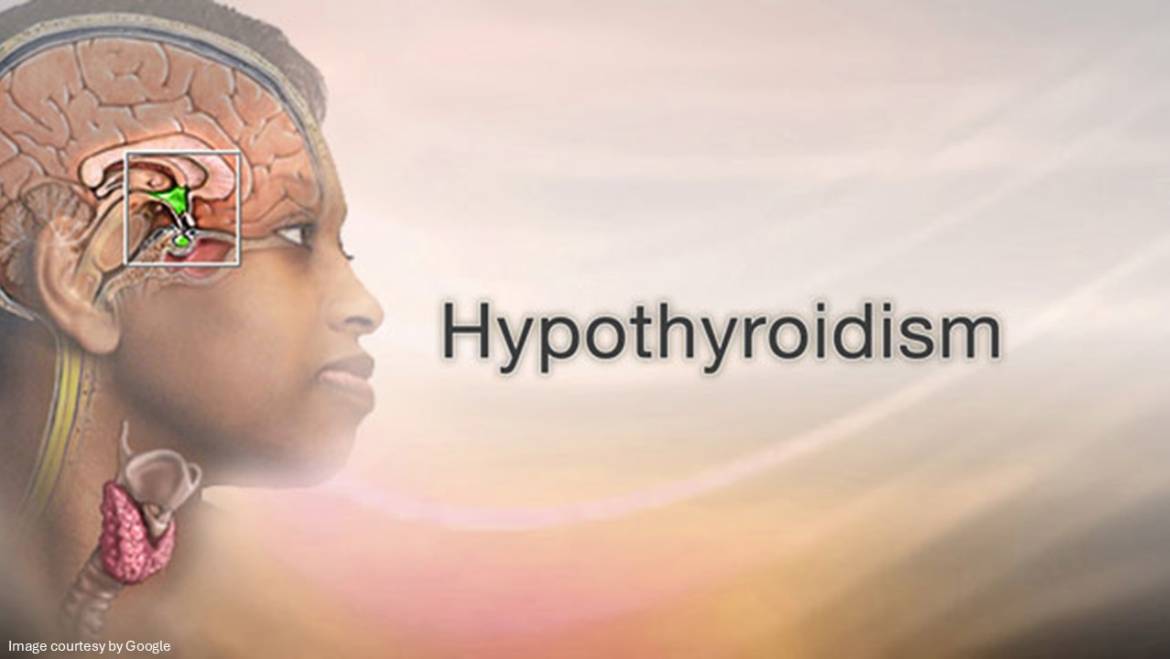For thyroid patients, it is important to understand the connection between hypothyroidism and mental health; an individual should have the clarity of what hypothyroidism is and what mental health is.
Read on to learn what is hypothyroidism:
Hypothyroidism is a medical condition where the thyroid gland in the neck does not produce enough thyroid hormones. These hormones, mainly thyroxine (T4) and triiodothyronine (T3) regulate the body’s metabolism, energy levels, and overall growth and development.
When the thyroid is underactive, it can lead to a slow metabolism, causing various symptoms. Hypothyroidism can be diagnosed through blood tests that measure the levels of thyroid hormones and thyroid-stimulating hormone (TSH).
What causes hypothyroidism?
The most common hypothyroidism cause is an autoimmune disorder called Hashimoto’s thyroiditis, but it can also result from iodine deficiency, certain medications, or other factors.
Treatment typically involves hormone replacement therapy, where synthetic thyroid hormones (like levothyroxine) are taken to normalize hormone levels in the body.
Hypothyroidism symptoms
Hypothyroidism, or an underactive thyroid, can cause a variety of symptoms, including fatigue, weight gain, sensitivity to cold, joint and muscle weakness, dry skin or hair, menstrual irregularities, slowed heart rate, depression, goiter (severity of the condition), puffy face, hoarse voice, slow speech, carpal tunnel syndrome (like pain numbness, and tingling in hand and fingers), constipation.
Can hypothyroidism be cured?
Signs of hypothyroidism can develop slowly and may be confused with other conditions, and it may also vary from person to person. If you have hypothyroidism symptoms, you should see a doctor to be tested for an underactive thyroid and understand the treatment of how hypothyroidism can be cured in your case.

What is mental health?
Mental health is a person’s emotional, psychological, and social well-being. It affects how people act, feels, and think. Mental health also influences how people handle stress, relate to others, and make choices. Mental health is an essential aspect of overall health, and it can be affected by various factors, including genetics, life experiences, and environmental influences.
Good mental health involves managing stress, building healthy relationships, and recovering from setbacks. Conversely, poor mental health can lead to emotional distress and challenges in daily functioning.
Mental health is as important as physical health, and seeking support when needed is crucial. Therapy, counseling, medications, lifestyle changes, and social support systems can all play significant roles in maintaining or improving mental health.
Hypothyroidism, a condition where the thyroid gland produces insufficient thyroid hormones, can have far-reaching effects on physical health. However, its impact on mental health is often underappreciated. The thyroid hormones, primarily thyroxine (T4) and triiodothyronine (T3) play a critical role in regulating the metabolism of nearly every cell in the body, including the brain. As a result, an imbalance in thyroid function can significantly affect mood, cognition, and overall mental well-being.
Let’s find out some surprising ways how hypothyroidism can affect mental health:
-
Depression and anxiety
One of the most common mental health symptoms associated with hypothyroidism is depression. As thyroid hormones regulate brain chemicals such as serotonin, their deficiency can lead to symptoms of low mood, hopelessness, and fatigue. Anxiety and irritability can also accompany hypothyroidism, as the hormonal imbalance may interfere with the regulation of stress hormones like cortisol.
-
Cognitive impairment (Brain Fog)
People with hypothyroidism may experience “brain fog” — a state of mental cloudiness, difficulty concentrating, and memory problems. This occurs because low thyroid hormone levels slow down cognitive processes, making it harder to focus, think clearly, or remember information.
-
Fatigue and lack of motivation
Chronic fatigue is one of the common symptoms of hypothyroidism. This constant exhaustion can contribute to feelings of apathy or lack of motivation, making daily tasks feel overwhelming and sometimes leading to social withdrawal or isolation, which can exacerbate mental health issues.
-
Mood swings and irritability
Hypothyroidism can cause mood swings and irritability, particularly when thyroid hormone levels are severely low. This happens because thyroid hormones regulate mood and emotional responses, and an imbalance can make it harder to cope with stress or frustrating situations.
-
Sleep disturbances
While hypothyroidism may cause excessive sleepiness during the day, it can also lead to trouble sleeping at night. Disrupted sleep patterns are often linked to worsening mental health, particularly depression and anxiety. Due to inadequate thyroid hormone levels, the body’s circadian rhythms may be thrown off balance.
-
Increased sensitivity to stress
A deficiency in thyroid hormones can affect the body’s ability to manage stress. People with hypothyroidism may feel more easily overwhelmed by everyday challenges, which can further aggravate anxiety and depression.
-
Risk of developing other psychiatric disorders
Untreated or poorly managed hypothyroidism has been linked to an increased risk of developing more serious psychiatric conditions, including bipolar disorder and schizophrenia. However, these are rare and usually occur in the context of a more severe thyroid imbalance.
Managing the connection
If you are experiencing mental health symptoms and suspect they may be related to hypothyroidism, it is crucial to seek medical advice. A simple blood test to measure thyroid-stimulating hormone (TSH) levels and free thyroid hormones (T4 and T3) can confirm the diagnosis.
Treatment typically involves thyroid hormone replacement therapy, which helps to normalize hormone levels and can lead to an improvement in both physical and mental health. In some cases, managing hypothyroidism with medication may require ongoing adjustments to find the optimal dosage, and additional mental health support may be beneficial, such as therapy or counseling to address the emotional aspects of the condition.
Conclusion
Hypothyroidism and mental health are closely linked, and understanding this connection is essential for recognizing and treating both physical and psychological symptoms. With the right treatment, many individuals with hypothyroidism can experience relief from mental health challenges and improve their quality of life. Levothyroxine (a synthetic version of a hormone called thyroxine) is a common medicine for treating thyroid; the dosage varies, considering the severity of the condition. Levothyroxine comes under various brand names. Follow the prescribed regimen to manage hypothyroidism; also, if you suspect that thyroid dysfunction might be affecting your mental well-being, consult a healthcare provider for a comprehensive evaluation.



